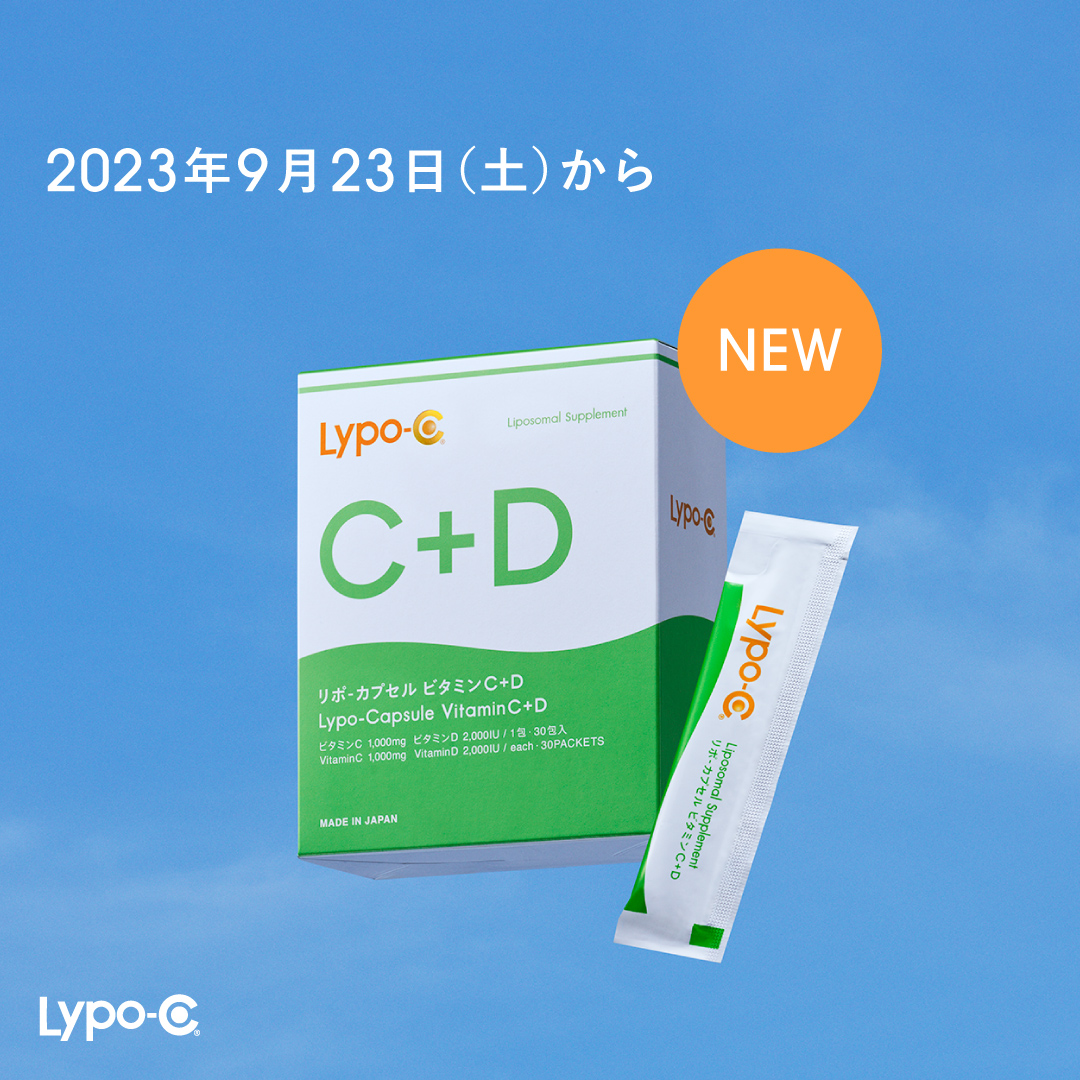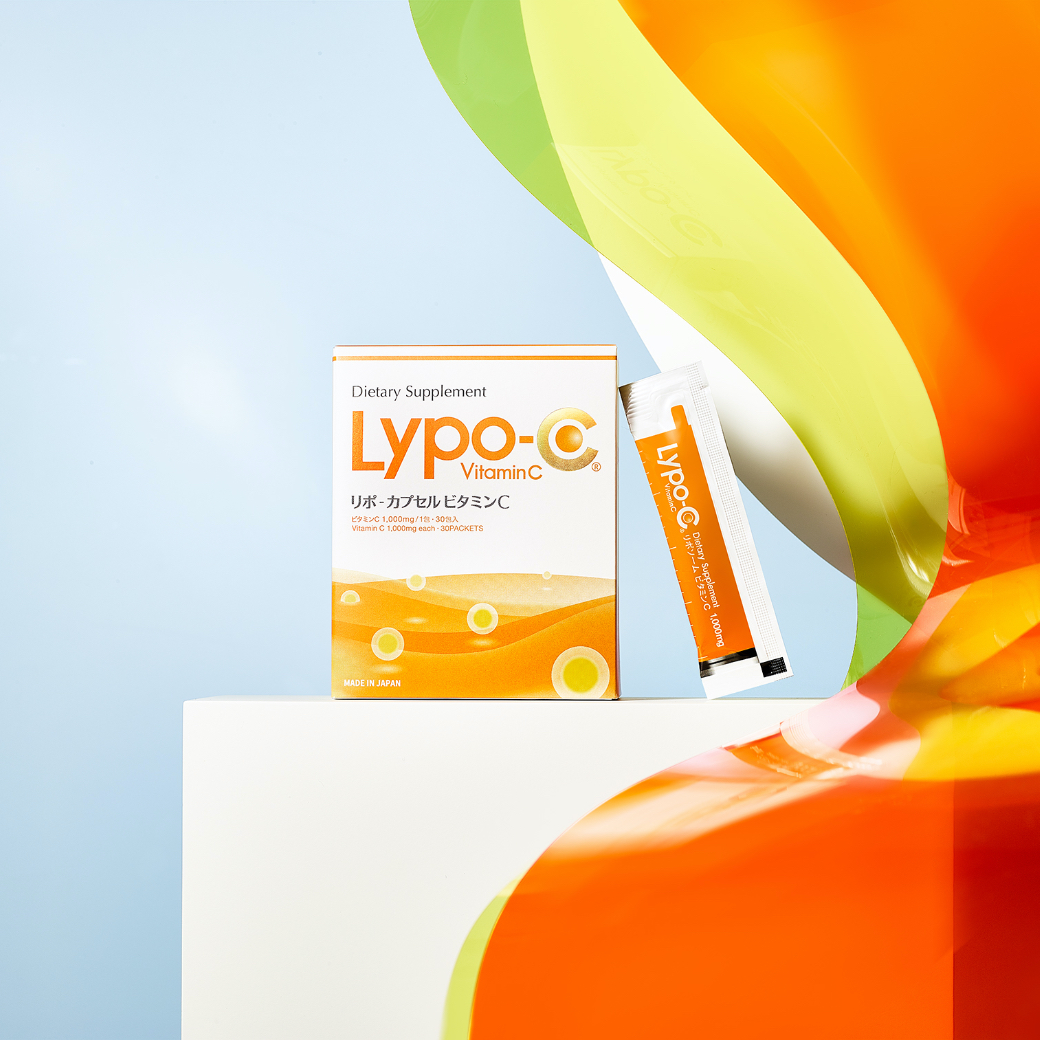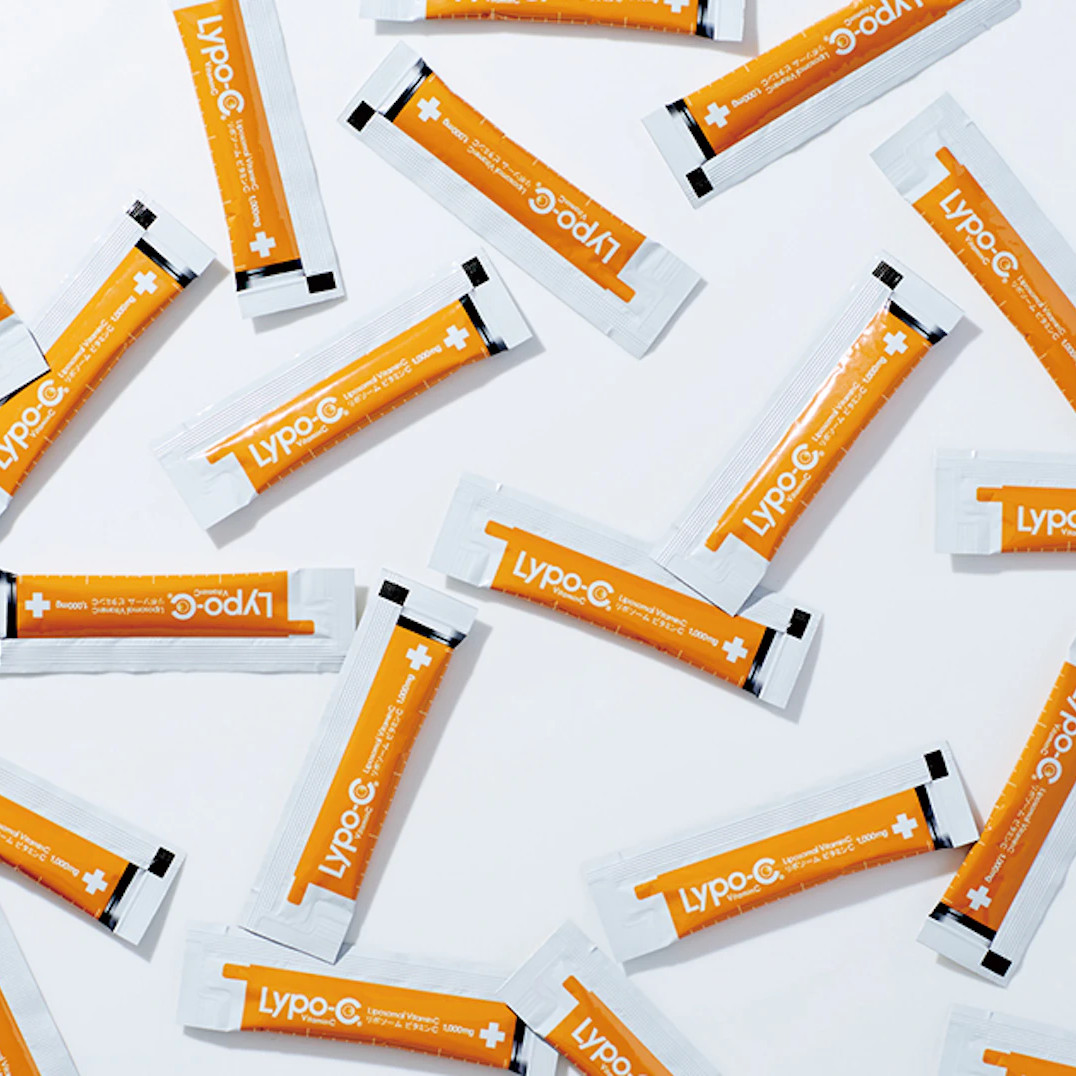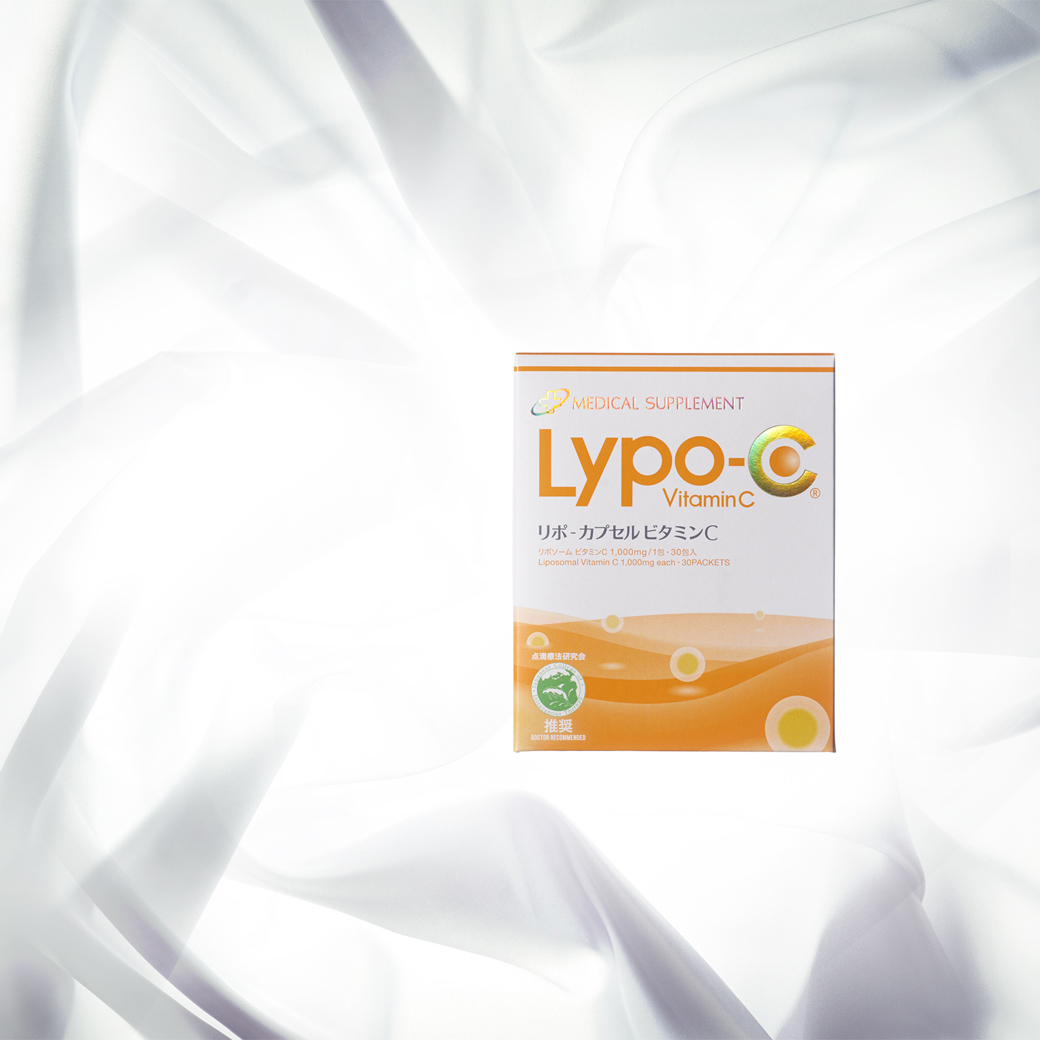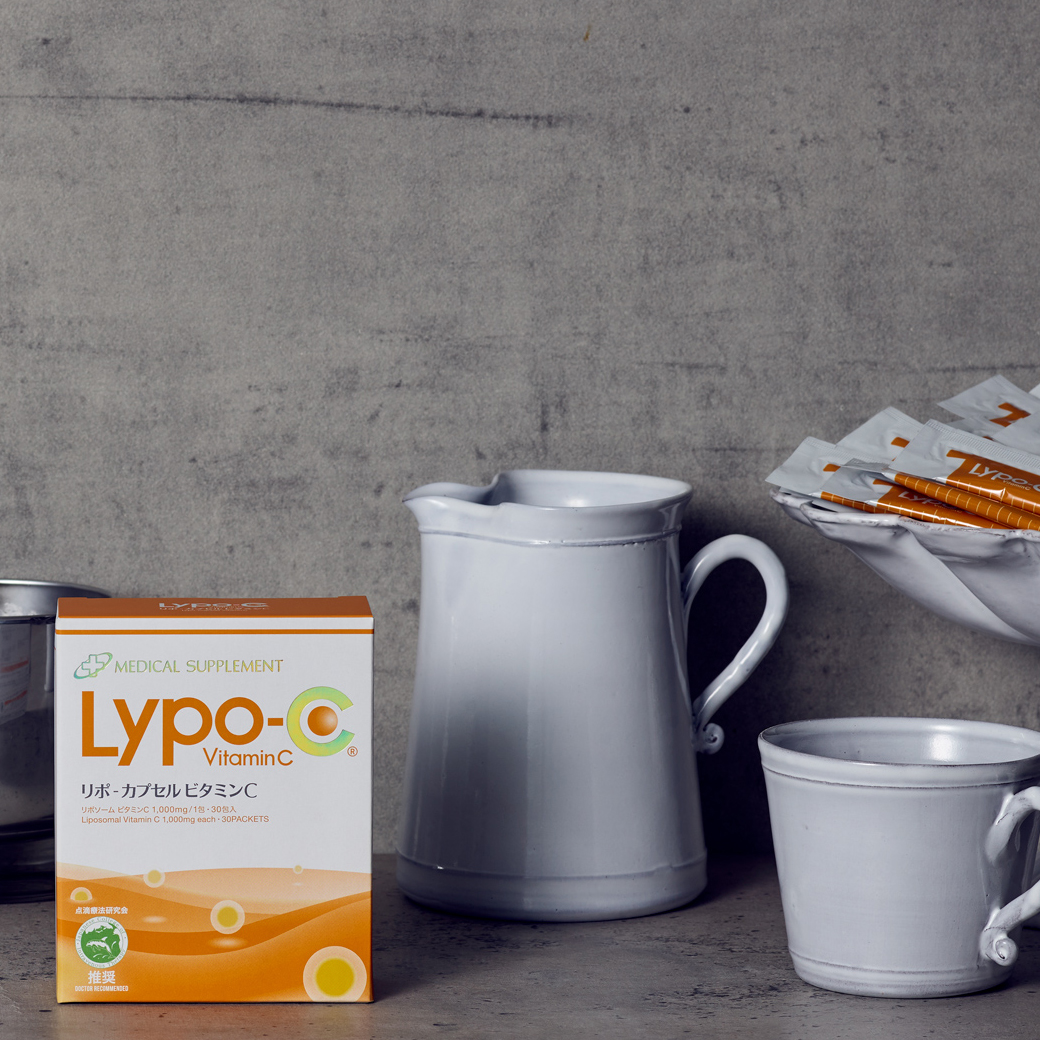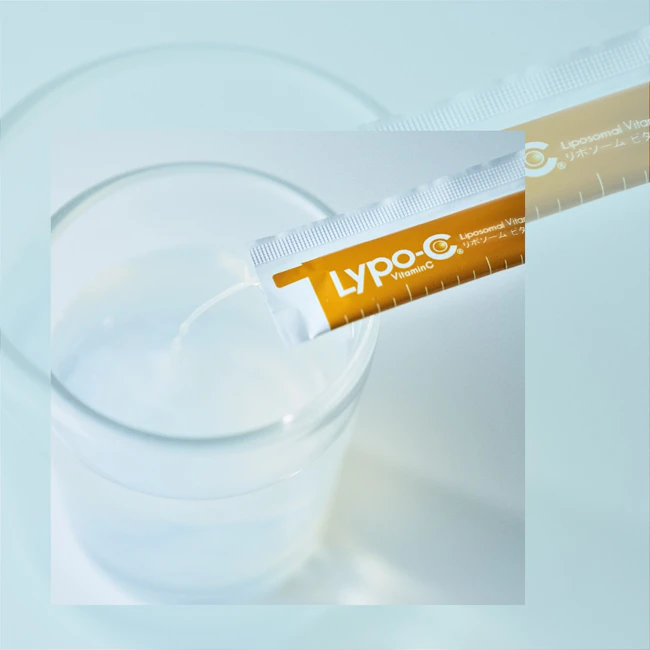
Commitment #04 The reason for Lypo-capsule
SUMMARY
- ・"Smooth liquid" liposomes
- ・What is the ideal liposome?
- ・Liposome shape
- ・Liquid and paste, and commitment
Lypo-C [Lypo-capsule] Vitamin C is a product that is close to the absorption rate of Vitamin C.
The most difficult point in product development was liposomes. In the past, we have introduced our commitment to liposomes three times in “Lypo-C ’s commitment”.
This time, I will summarize the state of liposomes and the commitment to dosage forms.
“Smooth liquid” liposomes
Many people are surprised at how smooth the liquid is when they try Lypo-capsule for the first time. Also, liposomal vitamin C comes in a variety of forms, and we are often asked why Lypo-capsule are in liquid form.
In fact, this "smooth liquid" is one of the reasons why Lypo-C [Lypo-capsule] Vitamin C is supported by many doctors.
What is the ideal liposome?
As is widely known, vitamin C is a nutrient that is difficult to absorb when taken orally.
Liposomes are used to compensate for the only drawback of vitamin C and to increase its absorption rate and bioavailability.
Liposomes are a technology developed as DDS (drug delivery system), and their role is to efficiently deliver the encapsulated nutrients to the necessary places.
Too hard and you won't be able to release the nutrients, too soft and the contents will leak out before they reach their destination. Exquisite hardness is the point, and it is also a proposition of liposomes that it can maintain the best condition for a long time.
Liposome shape
Liposomal vitamin C, which we can obtain as supplements, is roughly divided into three forms: powder, liquid, and paste.
Liposomes can be produced in a liquid or paste state depending on the material and manufacturing method. Liposomal vitamin C in liquid or paste form is obtained by packaging the resulting liposomes as they are.
Powdered liposomes are once freeze-dried (freeze-dried) so that liposomes can be stored for a long time. Another feature of this type is that it is easy to add additives, so it is easy to adjust the taste.
However, the state of liposomes becomes unstable during freeze-drying, and additives such as starch must be added to make them powdery. In addition, even if powdered liposomes are dissolved in water or juice (rehydrated), depending on the design, they may clump together and not return to liposomes.
When using a powder, we consider the state of the liposomes at the time of rehydration to be a key point, so we did not select a powder for Lypo-capsule Vitamin C.
We are also continuing this research because of the powdery benefits when successfully rehydrated.
Liquid and paste, and commitment
The major difference between liquid and paste liposomes is the difference in liposome properties (diffusibility).
When you put Lypo-C in a glass and pour water into it, it instantly dissolves in water and becomes cloudy. This is a state in which the liposomes are diffused rather than dissolved.
On the other hand, even if the paste-like substance is poured with water, it will remain thick and will not spread.
Uniform, ultra-fine liposomes diffuse in water and are quickly absorbed. In addition, it can act comprehensively on the contact surface, whether in the blood or on the cell membrane, and is expected to maximize the bioavailability.
One of the proud features of Lypo-capsule is that vitamin C can be encapsulated in liposomes with just the right amount of vitamin C and delivered in a liquid form while maintaining its good condition. Lypo-C is the only liposomal vitamin C in the world that diffuses into
What is the difference between Liposomal Vitamin C and Vitamin C?
Regular vitamin C is water-soluble and is easily excreted from the body. Liposomal vitamin C encased in liposomes, which are membranes of oil called phospholipids, is fat-soluble, easily absorbed, and increases bioavailability.
Vitamin C in liposomes
When choosing a vitamin C supplement, I think that the points to cherish are different for each person, such as taste, price, and word of mouth.
I would like to ask you to remember that vitamin C is a nutrient that is difficult to absorb when taken orally, and that the amount of vitamin C that reaches you is more important than the amount of intake.
And if you have never tried liposomal vitamin C, please give it a try.
Our desire is to bring you the experience of Vitamin C.
We aim to create a habit of listening to the voice of the body.
We hope that many people will become aware of the existence of liposomal vitamin C and incorporate it into their daily lives.


